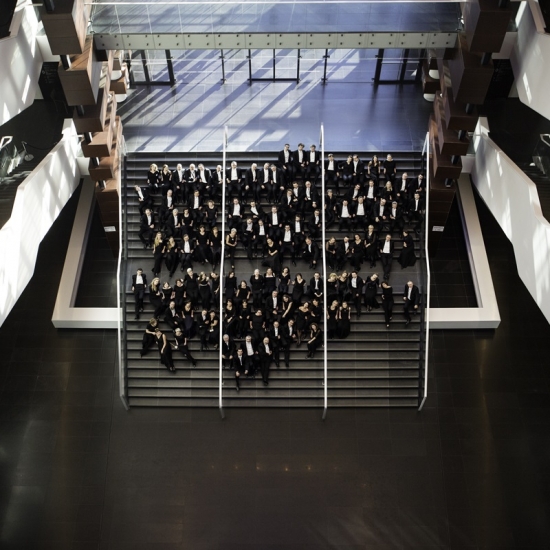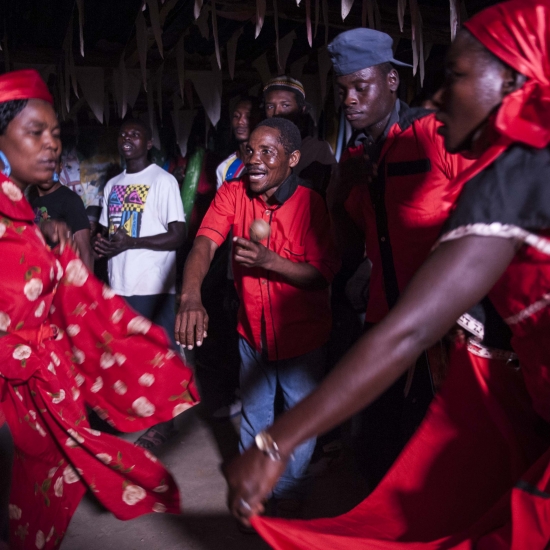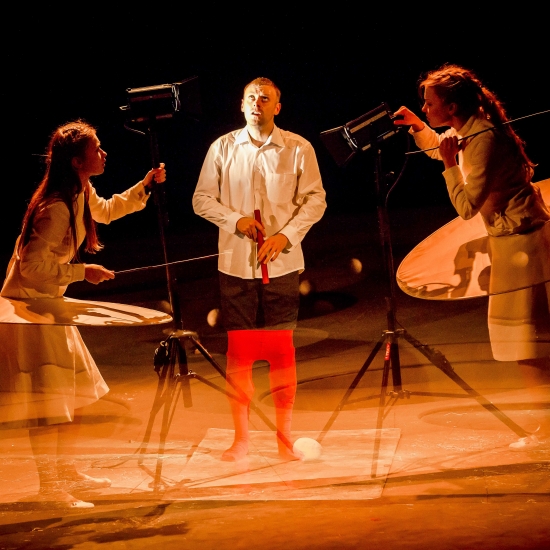Sections
Dziady Recycling Festival
Dziady Recycling Festival will be dedicated to Dziady as a cultural blueprint, one of the most original and momentous in Polish culture. Its originality and significance stems from the fact that Dziady is a metasocial commentary – that is, a story that the members of the community that inhabits Polish lands tell themselves about themselves.
Originally – and, to a limited degree, until this day – this story is told through celebrating commemorative rituals, including those that involve visiting and decorating graves on All Saints’ Day (1 November) and All Souls’ Day (2 November), and in more ancient times, through celebrating Dziady rituals – especially Dzmitrauskiya Dzyady in the autumn and Radaunickiya Dzyady in the spring – which survived centuries after the ‘Baptism of Poland’, especially in the borderlands between Belarus, Poland and Lithuania, but which have now been reduced to offering a feast to the dead. The pre-Christian form of these rituals – typical of Slavic religion – was reconstructed in the early 19th century by Romantic poet Adam Mickiewicz, who portrayed them for what they used to be – ritual spiritual seancés which involved conjuring and talking to spirits and then sending them back to the nether world, and the mutual accommodation/ assistance of the living and the dead.
Mickiewicz’s drama Forefathers’ Eve (Dziady), which is an open work (Parts II and IV came out in 1823, Part III in 1832, the unfinished Part I was published posthumously in 1860), was conceived as a modern analogue of theatre’s birth out of ritual, and as such it is rightly regarded as an arch-drama. It is a syncretic work which combines a ritual spiritual séance and Catholic exorcisms, an intimate celebration of remembrance and the drama of existence, a dramatisation of the current political events and a messianic mystery ritual. As a blueprint for a theatrical spectacle, it is a blend of Gothic horror and ceremonial theatre mystery ritual, of scathing political lampoon and a suicide’s Sentimental performance. Mickiewicz’s Forefathers’ Eve (Dziady) – described as a Polish metaphysical drama of a Faustian type – has lent a unique flavour to Polish literature and theatre. This refers not only to the productions of the play, which form a special strand in the history of Polish theatre, running from the Modernist Stanisław Wyspiański (1901) to his Postmodernist continuator Jerzy Grzegorzewski (1987 and 1995), from Leon Schiller’s monumental theatre (1932, 1933, 1934 and 1937) to Miron Białoszewski’s homemade intimate performance (1961) and Jerzy Grotowski’s ‘poor theatre’ (1961), but also to the productions infused with the same spirit as Forefathers’ Eve, such as Jerzy Grotowski’s and Józef Szajna’s Acropolis (1962) and Tadeusz Kantor’s séance, The Dead Class (1975), which can be described as 20th-century’s emblematic Forefathers’ Eve. This strand of work is still alive, as evidenced by the 2016 revivals directed by Michał Zadara and Eimuntas Nekrošius, which will be staged at the Festival.
In addition, some past productions of the play will be remixed: from Grotowski’s Forefathers’ Eve to Jerzy Grzegorzewski’s Forefathers’ Eve: Twelve Improvisations, including Kazimierz Dejmek’s historic production (1967). Dejmek’s revival went down in history mostly because it coincided with the social drama that unfolded in Poland in March 1968.
The blueprint contained in Mickiewicz’s drama has played out not only in literature and theatre, but also in social life, configuring the ideas, emotions, fantasies and dreams of the community. As a narrative presenting the raison d'être of this community in the form of a messianic mystery ritual, this blueprint has the social calibre of an eschatological myth. But if we see the Dziady that derives from Mickiewicz’s drama as a quasi-sacred, mythologising Polish cultural performance, we must acknowledge that its effectiveness is transgressive and lays itself open to the charge of sacrilege and blasphemy.
In an era of environmentalism, recycling is the modern name for both eternal return and ricorso, the recurrent patterns of social history. Commemorative rituals are a recycling of sorts, too, as they enable us to re-live something that has entered the collective memory. The festival will focus on recycling in the form of remixing the past productions of Forefathers’ Eve which constitute a living performative archive of Polish culture. It will be one big recycling of the cultural project of Forefathers’ Eve, carried out in an era of reactionary craving for myth, on the one hand, and of distrust of any kind of mythologising, on the other. The festival will be a test to see if Forefathers’ Eve can still be regarded as metasocial commentary, and if so, to determine what it says today.
Leszek Kolankiewicz





